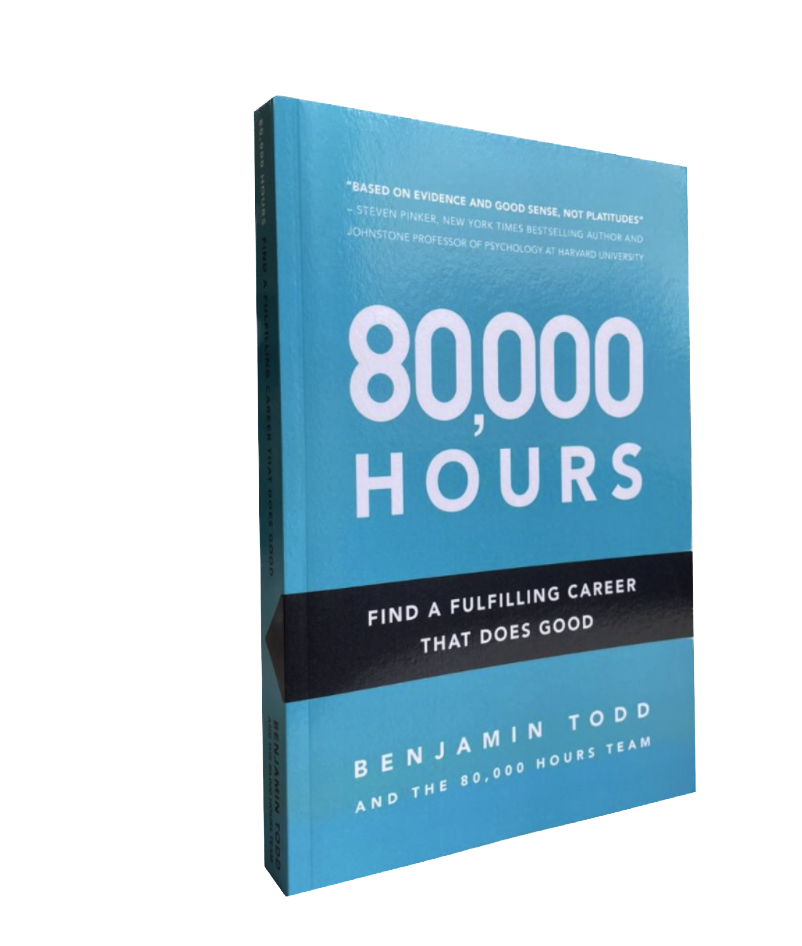Summary: How to find a fulfilling career that does good
Just the bottom lines from our career guide
TL;DR: To have a fulfilling career, build useful skills and use them to tackle pressing global problems.
Rather than expect to discover your passion in a flash of insight, your job satisfaction will grow over time as you learn more about what kind of work fits you, master valuable skills, and use them to find engaging work that helps others.
Move through these three career stages over time:
- Explore: and investigate your key uncertainties to find the best paths, rather than “going with your gut” or narrowing down too early. Make finding options that fit you best your key focus until you feel ready to bet on one for at least a few years.
Build career capital: Look for jobs that let you build valuable skills, and also your reputation, connections, character, and financial runway to increase your career capital and accelerate you towards your longer-term vision. At the same time, invest in your personal development. Do this until you’ve taken the best opportunities to invest in yourself.
Deploy: Use your career capital to tackle pressing global problems, and secure a job that meets your other personal criteria.
When it comes to what to aim for longer-term, here are three key things to look for to make a positive impact more effectively:
First, focus on more pressing social problems — those that are big in scale, neglected and solvable — rather than those that are popular or you happen to stumble into. Today, we think these involve efforts to safeguard the future, including issues like AI alignment, preventing pandemics, nuclear war, or great power conflict (see our full list of pressing problems).
Second, think broadly about all the ways you might contribute to solving those problems to identify the skills and roles that can help you make the biggest contribution. Consider research, communicating ideas, community-building, organisation-building, earning to give, and government and policy careers. See our full list of career reviews.
Third, focus on paths that have the best personal fit, and that best meet your other personal criteria. To find your best fit, think like a scientist: make some best guesses at the most promising paths and jobs, identify key uncertainties, and do cheap tests to resolve them. Keep updating your plan every 1–3 years.
Eliminate any options that might have big downsides, burn you out, or do significant harm, even if they seem like they might let you have a greater impact. Make sure you also have a backup plan B and plan Z. But after that, aim high. Although many efforts to help others fail, the best can be enormously effective.
When it comes to career planning, it’s useful to have some ideas about the best longer-term vision, but put the majority of your effort into finding the best next step (both working backwards from your vision and working forwards from interesting opportunities even if you’re not sure where they’ll lead).
Finally, to actually get a job, don’t just send out your CV in response to job listings. Get leads through your connections, and prove that you can do the work by actually doing some.
Focusing your career on tackling pressing global problems isn’t always easy. If you’re not able to change jobs right now, you can still have a lot of impact by donating or enabling others to work on the problems you think are most pressing.
Seek community because two people working together effectively can achieve more than they could individually.
By working together, in our lifetimes, we can prevent the next pandemic and mitigate the risks of AI, we can end extreme global poverty and factory farming — and we can do this while having interesting, fulfilling lives too. So let’s do it.
You have 80,000 hours in your career.
Don’t waste them.
Read the full guide
Next, you can read the full career guide to learn more about how to find a career that is both satisfying and has a positive impact.
Part 1: What makes for a dream job?
Or get the whole guide as a book.
If instead you’d like something more advanced, listen to our podcast featuring in-depth interviews with experts on the world’s most pressing problems, or see our advanced series, which contains some of our most important and novel research about how to increase your impact.
